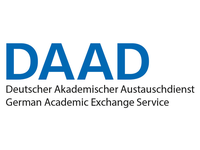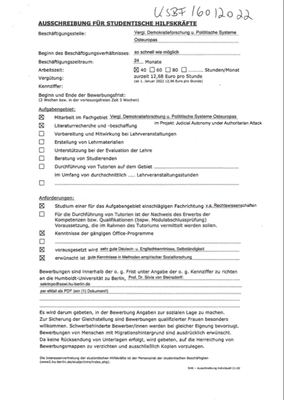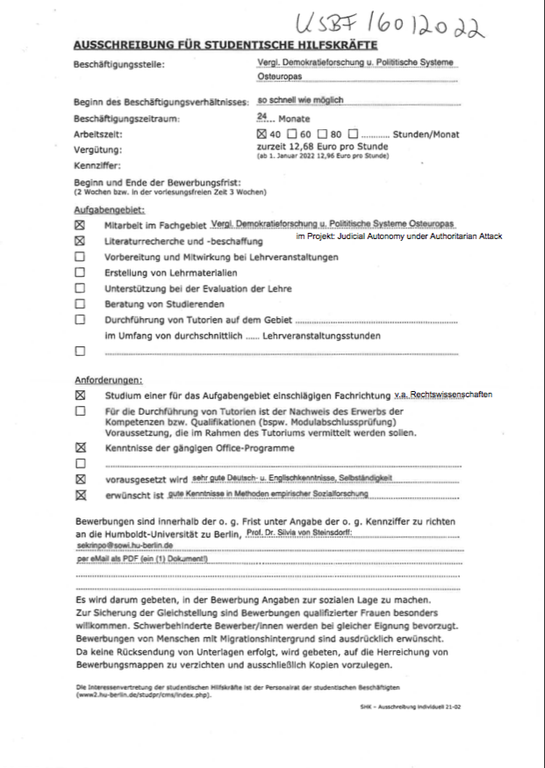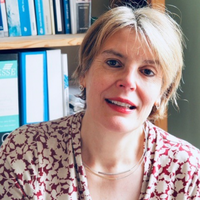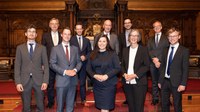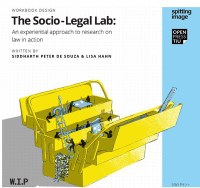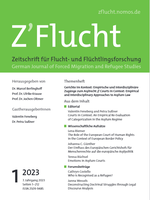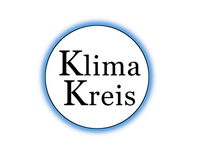News
How can asylum law and courts be studied?
At a workshop at Humboldt-Universität zu Berlin, researchers discussed different disciplinary approaches to the study of asylum law and courts in preparation of a Special Issue of the German Journal of Forced Migration and Refugee Studies (Zeitschrift für Flucht- und Flüchtlingsforschung – Z’Flucht).
The study of asylum law and its practical implementation at court in a multi- or even interdisciplinary way greatly benefits from the assembly of a variety of disciplinary voices and hearing their dialogue. To achieve this, Valentin Feneberg and Petra Sußner (both of Humboldt-Universität zu Berlin) organised a workshop entitled Flucht vor Recht – Flucht ins Recht? Empirisch-interdisziplinäre Asylrechtsforschung am Schauplatz Gericht (Fleeing from law – fleeing to law? Empirical and interdisciplinary research on asylum law and courts) at the Integrative Research Institute Law & Society (LSI) Berlin on 30 September & 1 October 2021. The event was co-hosted by Olaf Kleist and Zeynep Yanasmayan (German Center for Integration and Migration Research, DeZIM), the ‘Politics and Law’ research group of the German Political Science Association (DVPW), and the 'Refugee Law' research group of the German Network for Forced Migration Studies. For many participants, it was the first in-person workshop after one and a half years of Covid-induced physical distancing, and thus an ideal occasion for in-depth exchange and discussion of the topic. The manuscripts presented at the workshop will form the basis of a special issue of the German Journal of Forced Migration and Refugee Studies (Zeitschrift für Flucht- und Flüchtlingsforschung – Z’Flucht).
In their keynote, Cathryn Costello and Jessica Breaugh from the Centre for Fundamental Rights at the Hertie School in Berlin discussed the empirical study of refugee recognition processes and the particular challenges of studying UNHCR mandate Refugee Status Determination (RSD). On then one hand, they introduced surveys of decision-makers and others as a data source in general, and the research design of the RegMig survey examining the workings of UNHCR mandate RSD, on the other. The latter aims to shed light to the – so far understudied – practices of UNHCR, acknowledging the practical and normative importance of this institution for refugee recognition globally.
Johanna Günther (University of Hildesheim) and Lena Riemer (Yale University) both approached the case law of the European Court of Human Rights (ECtHR) from different disciplinary and methodological angles. Johanna Günther analysed the impact of the ECtHR on European asylum policy from a political science point of view, showing how the decision in M.S.S. v. Belgium and Greece on the prohibition of torture influenced changes to the Dublin system of the European Union. Conducting a mainly doctrinal approach, Lena Riemer set out how the interpretation of the collective expulsion prohibition by the ECtHR changed during the last decade to a more regressive approach, culminating in 2020 in its N.D. and N.T. v. Spain judgment on Spain’s policy of ‘hot returns’. Although using different methodological toolkits, both papers consider the court as embedded in a broader institutional setting which needs to be considered in order to evaluate the role of courts beyond individual decisions.
Nicole Hoellerer and Nick Gill from the ASYFAIR project at the University of Exeter shared their vast experiences of asylum courts as ethnographic research sites. Together with their colleagues from their project, they observed more than 450 court hearings in five European countries. They discussed the utility of legal ethnography at asylum appeal courts, the challenges of ethnographic research at some of them, as well as the advantages and disadvantages of such an approach. Their research demonstrates that one must literally enter the ‘black box’ of court to see how the law works in practice and to do justice both to those who apply it and those who are affected by it.
Taking into account the context of the work of courts, Constantin Hruschka (MPI for Social Law and Social Policy) shared his analysis of the ‘legislative hyperactivity’ in Germany, where, since 2014/2015, the German legislature has adopted more than 35 amendments to the Residence and Asylum Act. The analysis focussed on the link between these changes and the underlying migration management framework, describing a turn from an inclusionary to an exclusionary legal framework, emphasising the return of migrants and securitization instead of integration and asylum seekers’ well-being.
The ‘summer of migration’ of 2015 did not only lead to crucial legislative changes but also fostered the development of Refugee Law Clinics in Germany. In their paper, Mailin Loock and Sophie Greilich (both University of Hamburg) connected this development with the emergence of Law Clinics in other countries and discussed how these organisations could contribute to asylum seekers’ access to rights, as well as in how far they have the potential to generate valuable synergies by linking academia, practice and civil society.
Janna Wessels (Vrije Universiteit Amsterdam) contributed a workshop-in-a-workshop on discourse analysis of legal doctrine in refugee law research, using her work on so-called ‘discretion reasoning’ (recently published with Cambridge University Press) as a case study. Following an introduction to discourse analysis, participants were asked to read and discuss case law from France, Germany and the UK, and to identify ‘discretion reasoning’ by courts and the form in which it appears. The exercise revealed how differently courts argue when it comes to acts and the ‘identity’ of claimants applying for asylum based on persecution due to their sexual orientation, and showed how doctrinal reasoning can be deconstructed by applying discourse analysis, and why this method can be an important extension to doctrinal and content analysis.
In sum, the workshop confirmed that the study of the “plurality of interpretative voices” (Costello 2015) in the asylum regime requires a plurality of disciplinary perspectives, but also highlighted the challenge of developing a truly inter-disciplinary approach which is more than just a juxtaposition of these perspectives. In an ongoing dialogue between editors and authors, further work on the Special Issue will address this challenge and seek answers to questions that the workshop brought to light but could not yet fully answer.
Birgit zur Nieden [in German] on the amendment of the Berlin Participation Act
In the new episode of the Law & Society Podcast, Valentin Feneberg discusses with Birgit zur Nieden, Head of the Department for Participation in the Migration Society of the Berlin Senate Department for Integration, Labor and Social Affairs, how participation can be steered by law.
Please find an extended abstract on our German webpage.
Birgit zur Nieden is Head of the Department for Participation in the Migration Society at the Berlin Senate Department for Integration, Labor and Social Affairs and was previously a research assistant at the Institute for Social Sciences at HU Berlin and at the Berlin Institute for Empirical Integration and Migration Research (BIM).
All episodes here.
Spotify | Apple Podcasts | podcast.de
CfA: Doctoral Programme Law & Society of the LSI
The doctoral programme Law & Society of the LSI in cooperation with the Berlin Graduate School of Social Sciences (BGSS) is currently accepting applications for two doctoral scholarships at Humboldt-Universität zu Berlin funded by the German Academic Exchange Service (DAAD, Graduate School Scholarship Programme).
The LSI and the Berlin Graduate School of Social Sciences (BGSS) have established the joint doctoral programme Law & Society to promote innovative interdisciplinary legal research funded by the German Academic Exchange Service (DAAD, Graduate School Scholarship Programme). The programme is dedicated to investigating the role and function of law for tackling the current and fundamental challenges for a democratic global society (inter alia climate change, digital transformation, the rise of populism and the decline of the rule of law) from a genuinely interdisciplinary perspective. The programme offers interdisciplinary supervision and support of the doctoral students within the international structured doctoral programme of the BGSS. The LSI is a stimulating interdisciplinary and international research environment in the heart of Berlin at Humboldt-University.
The courses of the doctoral programme will be taught in English. However, applicants are expected to acquire a working knowledge of German. Fully funded language courses will be available as part of the doctoral scholarship. The doctoral thesis may be written in English or German.
Application deadline: March 31, 2022
For all application requirements and more informations find the full Call for Applications here.
Regulating Extremes: Climate Change
Beginning in February 2022, the lecture series will address goals and challenges that regulation faces in times of climate crisis.
Climate change increases the risk of natural disasters, damages ecosystems and exacerbates humanitarian crises worldwide. The fight against global warming is one of the key challenges of the 21st century. The expectations that are directed at the law (among others) are therefore considerable: law can be a driving force of the social transformation that is necessary to prevent the threat of extreme restrictions on freedom in the near future. It can also mitigate the individual consequences of climate change through distributive mechanisms. Yet, the law is subject to doctrinal as well as practical, political or social limits. In the lecture series we want to discuss goals and challenges that regulation faces in times of climate crisis.
The lecture series is part of the join project The Laws of Social Cohesion, a collaborative endeavor of the Integrative Research Institute Law & Society, FUELS (Freie Universität Empirical Legal Studies Center) and Recht im Kontext, funded by the Berlin University Alliance as part of the Grand Challenge Initiatives Social Cohesion.
More information about the program here.
Kai Ambos: Protecting the Environment through a Crime of Ecocide?
On 22.02.2022 Kai Ambos will talk about the recent proposal by the Independent Expert Panel for the Legal Definition of Ecocide (IEP) to create a core international crime of ecocide. This talk will be part of LSI' lecture series Regulating Extremes: Climate Change.
The recent proposal by the Independent Expert Panel for the Legal Definition of Ecocide (IEP) to create a core international crime of ecocide – as a further core crime of the Rome Statute of the International Criminal Court – displays great confidence in the regulatory potential of criminal law. However, as will be demonstrated in this talk, the proposal suffers from serious shortcomings, lacks sufficient reasoning and the drafters offer practitioners little help with the intricate problems arising from their draft definition.
Kai Ambos ist Professor für Straf- und Strafprozessrecht, Rechtsvergleichung, internationales Strafrecht und Völkerrecht und Leiter der Abteilung für ausländisches und internationales Strafrecht, Institut für Kriminalwissenschaften, an der Georg August Universität, Göttingen. Er ist zudem Richter am Kosovo Sondertribunal und Berater (amicus curiae) der kolumbianischen Sondergerichtsbarkeit für den Frieden.
This talk is part of the lecture series Regulating Extremes: Climate Change.
New Website: The Laws of Social Cohesion
LSC is an interdisciplinary project in which scholars from the humanities, law, and social sciences work together to investigate issues that affect the role of law in social cohesion.
Law is a social practice that actively shapes social coexistence. The Laws of Social Cohesion charts the manyfold ways in which the law affects social cohesion: How can it promote integration, inclusion and societal discourse? Where are the limits of its integrative capacity? To what extent does it prevent participation and drives society further apart? LSC is an interdisciplinary research endeavor at the intersection of law and the social sciences. It is a joint project of the Integrative Research Institute Law & Society (LSI) of Humboldt University, the Freie Universität Empirical Legal Studies Center (FUELS), and Humboldt University's research network Recht im Kontext.
Click here for the website.
Javiera Barandiarán: Environmental Memory and Regulation: Reflections from Lithium-Rich Salt Flats
This talk shares work in progress which reviews what scientists know of the interactions between the knowledge about lithium-rich salt flats and its regulation, its historical context, and some of the consequences for climate change.
Salt flats are the remnants of terminal lakes, where the water that once lay there seeped underground or evaporated into the atmosphere. Salt flats today are receiving renewed attention from the mining industry as a source of low-cost lithium, a soft, white metal used in electric vehicles. This mining boom is putting salt flats, and their surrounding ecosystems, under environmental stress. This talk shares work in progress which reviews what scientists know of this stress and the interactions between this knowledge and regulation, its historical context, and some of the consequences for climate change. Drawing on the writings of geologists and scientists, as well as regulatory environmental studies, the analysis reflects on the underlying views of nature that inform these writings and ongoing debates about the sustainability of salt flat mining. Existing regulation fails to adequately protect salt flats due in part to its conceptual commitments to the present and future, at the expense of environmental historical memory, as evidenced in the views of nature held by different scientists.
Javiera Barandiarán is an associate professor in the Global Studies Program at the University of California, Santa Barbara. She received her BA from the University of Edinburgh and PhD in environmental science, policy, and management at the University of California, Berkeley. Barandiarán is the author of Science and Environment in Chile: The Politics of Expert Advice in a Neoliberal Democracy (MIT, 2018) and has published widely in journals such as Environmental Politics, Journal of Political Ecology, and Latin American Research Review. Her work has been supported by the Mellon Foundation, Social Science Research Council, and the National Science Foundation, among others. She is a fellow at The American Academy in Berlin.
This event is part of the lecture series Regulating Extremes: Climate Change.
Jörg Niewöhner: Die Zukunft von und durch Wasser gestalten: Kolumbien, Chile, Deutschland
Jörg Niewöhner bespricht an Hand von drei Länder-Beispielen, wie sich Mensch-Umwelt Systeme unter Bedingungen planetaren Umweltwandels verändern, welche Probleme sich daraus ergeben und ob und wie eine rechtswissenschaftliche Perspektive bei der Entwicklung einer ‚Politik der Bewohnbarkeit‘ bzw. einer more-than-human livability hilfreich sein könnte.
Sich rasch verändernde Mensch-Umwelt Systeme werden nur unzureichend in bestehenden Steuerungsregimen abgebildet und bearbeitet. Ich werde zunächst an drei Beispielen aus Kolumbien, Chile und Deutschland darlegen, wie sich Mensch-Umwelt Systeme unter Bedingungen planetaren Umweltwandels verändern. Dies hat mit neuen Unsicherheiten, Dynamiken, Extremen und Natur|Kultur Verhältnissen zu tun. In allen drei Fällen steht der Umgang mit Wasser als Ressource im Zentrum. In einem zweiten Schritt werde ich skizzieren, wie diese Veränderungen zu Problemen führen, die meines Erachtens innerhalb der bestehenden Steuerungsregime nur unzureichend adressiert werden. Abschließend möchte ich zur Diskussion stellen, ob und wie eine rechtswissenschaftliche Perspektive bei der Entwicklung einer ‚Politik der Bewohnbarkeit‘ bzw. einer more-than-human livability hilfreich sein könnte.
Jörg Niewöhner lehrt und forscht auf einer Professur für die Anthropologie von Mensch-Umwelt Beziehungen an der HU Berlin. Er ist außerdem Direktor des Integrative Research Institutes on Transformations of Human-Environment Systems, IRI THESys. Seine ethnographische Forschung am Schnittfeld von Anthropologie und Wissenschaftsforschung beschäftigt sich mit Mensch-Umwelt Beziehungen im Wandel in den Bereichen Klimafolgen, Nachhaltigkeit und globaler Wandel sowie planetarer Gesundheit, Psychiatrie und Lebenswissenschaften.
Kontakt: joerg.niewoehner(at)hu-berlin.de
This event is part of the lecture series Regulating Extremes: Climate Change.
Anne-Katrin Speck: Recht nah am Forschungsgegenstand – Erkenntnisse aus ethnographischer Feldforschung am Europäischen Gerichtshof für Menschenrechte
In diesem Werkstattgespräch werden Eindrücke und erste Ergebnisse ethnographisch fundierter Forschung am Sitz des Europäischen Gerichtshofs für Menschenrechte (EGMR) in Straßburg vorgestellt, die der Analyse des Beweisrechtsregimes des EGMR diente.
Werkstattgespräch der Reihe: Recht interdisziplinär: Aber wie? Methoden im Gespräch
In diesem Werkstattgespräch werden Eindrücke und erste Ergebnisse ethnographisch fundierter Forschung am Sitz des Europäischen Gerichtshofs für Menschenrechte (EGMR) in Straßburg vorgestellt, die der Analyse des Beweisrechtsregimes des EGMR diente. Es wird gezeigt, wie ein induktiver Forschungsansatz und die entsprechenden Untersuchungsmethoden nicht nur wertvolle Erkenntnisse über die wichtigsten Merkmale und Grundlagen des Regimes liefern, sondern auch eine Auseinandersetzung mit der Einschätzung des Regimes durch verschiedene Akteur*innen ermöglichen. Darüber hinaus dient das Werkstattgespräch der Reflexion über Positionalität und Subjektivität von Forschenden in einem elitären institutionellen Umfeld und der ständigen Koproduktion von Wissen.
- Wann 07.06.2022 von 18:15 bis 19:45
- Wo Anmeldung: law-and-society@hu-berlin.de
Anne-Katrin Speck is a PhD researcher within the Human Rights Centre at Ghent University. Their research focuses on the evidence regime developed by the European Court of Human Rights, as part of the larger ERC-funded project “DISSECT: Evidence in International Human Rights Adjudication”, under the supervision of Professor Marie-Bénédicte Dembour.
Zwei Ausschreibungen für studentische Hilfskräfte: Vergl. Demokratieforschung und politische Systeme Osteuropas - Prof. Dr. Silvia von Steinsdorff
Am Lehrbereich von Prof. Dr. Silvia von Steinsdorff sind zwei Stelle für studentische Hilfskräfte im Fachbereich Vergleichende Demokratieforschung und politische Systeme Osteuropas ausgeschrieben.
Alle weiteren Informationen zu den Voraussetzungen und Fristen bezüglich der Bewerbung können diesem Dokument entnommen werden.
Bettina Lange: Harnessing Sociological Approaches to Law, Regulation and the Water Environment: The Case of ‘Bubble Permitting’
On Jun 21, 2022 6:15 pm, we would like to invite you to the lecture of Bettina Lange on Harnessing Sociological Approaches to Law, Regulation and the Water Environment: The Case of ‘Bubble Permitting’. The presentation will introduce ‘bubble permitting’ in catchments as a distinct collective action approach for enabling equitable and sustainable access to water through reciprocity exchanges, bartering or trading, including of virtual water.
A changing climate and associated extreme weather events are giving rise to an increased risk of droughts and floods in a number of jurisdictions. These pose significant challenges for established ‘command and control’ ways of governing water resources. This presentation will focus on discussing the strengths and limitations of a sociological approach to law and regulation that foregrounds socio-economic norms for developing innovative approaches to preventing and limiting the impacts of droughts. Periodic drought events no longer just affect parts of the world traditionally perceived as water scarce, such as South Africa, Colorado, California, and Southern Australia, but also regions with otherwise significant rainfall, such as the southeast of the United Kingdom and parts of Germany. This has given rise to debates about how best to reform regimes of administrative permitting that limit the abstraction of water from the natural environment by water utilities, farmers and industrial users. The presentation will introduce ‘bubble permitting’ in catchments as a distinct collective action approach for enabling equitable and sustainable access to water through reciprocity exchanges, bartering or trading, including of virtual water.
Bettina Lange is an associated professor of Law and Regulation at the University of Oxford.
This event is part of the lecture series Regulating Extremes: Climate Change.
HU Berlin erfolgreich beim Aufsatzwettbewerb 'Verwaltungsgerichtsbarkeit im Wandel'
Mit einem Beitrag über die Verwaltungsgerichtsbarkeit zur Zeit des Nationalsozialismus erreichte Christoph Schuch von der HU Berlin den ersten Platz. Zweite wurden LSI-Mitglied Valentin Feneberg und Paul Pettersson (Uni Halle) mit ihrem Aufsatz zu humanitärem Schutz vor extremer Armut.
Zum 100-jährigen Jubiläum der Verwaltungsgerichtsbarkeit in Hamburg begrüßte Senatorin Anna Gallina am 27. Juni 2022 Gäste aus Justiz, Politik und Wissenschaft bei einem Senatsempfang im Hamburger Rathaus. Anlässlich des Jubiläums wurde der Aufsatzwettbewerb 'Verwaltungsgerichtsbarkeit im Wandel' veranstaltet, organisiert durch die Hamburger Verwaltungsgerichte, die Fakultät für Rechtswissenschaft der Universität Hamburg und die Bucerius Law School.
Für seinen Beitrag ‘…mit gegenwärtiger Staatsauffassung nicht vereinbar.‘ Über den extremen Wandel der Hamburger Verwaltungsgerichtsbarkeit im Nationalsozialismus erhielt Christoph Schuch von der Juristischen Fakultät der HU Berlin den ersten Preis. Herzlichen Glückwunsch!
Valentin Feneberg vom LSI und Paul Pettersson von der Universität Halle-Wittenberg erhielten den zweiten Preis für Ihren Aufsatz Schutz vor extremer Armut – Asylrechtsfortbildung durch Verwaltungsgerichte.
Der dritte Preis ging gemeinsam an Maximilian Roth von der Universität Gießen (Vom Revisions- zum Tatsachengericht: der Wandel des Bundesverwaltungsgerichts am Beispiel von Infrastrukturvorhaben) und Marcus Schnetter von der Universität Münster (Kleine Richterlein?).
Die Pressemitteilung der Stadt Hamburg finden Sie hier: https://www.hamburg.de/pressearchiv-fhh/16298108/2022-06-22-bjv-senatsempfang-100-jahre-verwaltungsgerichtsbarkeit-in-hamburg/
Access to Law - Accessible Rights? Fifth Congress of the German-speaking Sociology of Law Association, 21-23 September 2023, Leopold-Franzens-University Innsbruck
As "access to law" is a classic topic in the sociology of law and within the empirical legal studies it will build the focus of the inter- and mulitdisciplinary congress taking place in Innsbruck in September 2023.
-
Knowledge about law, knowledge in law, knowledge for law
-
Legal subjectivity and legal subjects
-
(Non-)mobilisation of law and rights
-
Access to criminal law
-
Access to social rights, access to social law
-
Global access to law
-
Courts in crisis
-
Environment in law
-
Societal security - social security, sense of security and access to justice
The Congress is organised by:
-
Department of Applied Sociology of Law and Criminology, Faculty of Social and Political Science, University of Innsbruck, Vienna (IRKS)
-
Department of Legal Theory and Future of Law, Faculty of Law, University of Innsbruck
-
Department of Civil Law, Faculty of Law, University of Innsbruck
Participating Organisations:
-
Arbeitskreis Politik und Recht, Deutsche Vereinigung für Politikwissenschaft
-
Research Committee "Sociology of Law", Swiss Sociological Association (FKR)
-
Integrative Research Institute Law & Society, Humboldt-Universität zu Berlin (LSI)
-
Sektion "Recht & Gesellschaft“, Austrian Association for Sociology
-
Section "Sociology of Law", German Sociological Association
Call for Papers: https://www.recht-und-gesellschaft.info/innsbruck2023/CfP.html
Please submit until 16.01.2023
Contact:
Mail: rechtssoziologie2023@uibk.ac.at
Phone: 0043 512 507 73901
The Socio-Legal Lab: An Experiential Approach to Research on Law in Action, Book Launch with Siddharth de Souza and Lisa Hahn
LSI Book Launch, 29.11.22, 18:15: The interactive workbook “The Socio-Legal Lab: An Experiential Approach to Research on Law in Action” is designed to accompany researchers on their way through a socio-legal research project.
Are you interested in exploring socio-legal research methods and are looking for guidance on how to do so? The interactive workbook “The Socio-Legal Lab: An Experiential Approach to Research on Law in Action” is designed to accompany researchers on their way through a socio-legal research project. The book employs the idea of a “lab” as a space for interactive and experiential learning. In that spirit, the talk will give an overview of the book, but will do so in an interactive manner by trying out selected exercises with the audience.
More information on the workbook can be found here.
Siddharth de Souza is a post-doctoral researcher at the Global Data Justice Project, Tilburg Law School.
Lisa Hahn is a Ph.D. Candidate in Law at Humboldt University Berlin (HU Berlin) and a Research Assistant at the Berlin Social Science Center (WZB).
The event is part of the LSI Werkstattgespräche and of the LSI Berlin Book Launches.
Location: E 25, Unter den Linden 9 & via stream
Registration: law-and-society@hu-berlin.de
++VERLEGT++ Konflikt und Kooperation in der Transformation. Die Rolle von Klimarecht und Klimaklagen, Podium mit Petra Sußner und Michael von Landenberg-Roberg
Podium, 10.01.2023, 18:15 Uhr: Auf dem Podium beleuchten Dr. Petra Sußner und Dr. Michael von Landenberg-Roberg Beiträge von Klimarecht und Klimaklagen für die sozialökologische Transformation.
Podium, 06.12.22, 18:15-19:45 Uhr
In der Klimakrise verschärfen sich bekanntlich Konflikte zwischen Menschen, Gemeinschaften und Umwelt. Auch die notwendige Transformation zu einer klimaneutralen Gesellschaft fordert diese Verhältnisse heraus. Wie kann Recht als Modus der Konfliktlösung hier zur Entschärfung beitragen? Auf dem Podium beleuchten Dr. Petra Sußner und Dr. Michael von Landenberg-Roberg entsprechend Beiträge von Klimarecht und Klimaklagen für die sozialökologische Transformation.
Michael von Landenberg-Roberg behandelt aus rechtswissenschaftlicher Regulierungsperspektive die Akzeptanzsicherung nach dem Klimaschutzrecht als Bedingung einer gelingenden Transformationspolitik.
Aus der Perspektive der feministischen Rechtswissenschaft untersucht Petra Sußner ausgehend von dem aktuell vor dem EGMR ausgetragenen Rechtsstreit der Klimaseniorinnen Möglichkeiten der Vergemeinschaftung im Recht des Anthropozän.
Die Veranstaltung ist Teil der Reihe Regulating Extremes: Climate Change.
Moderation: Dr. Anna-Julia Saiger, LL.M.
Dr. Petra Sußner ist Projektkoordination DFG Forschungsgruppe Recht-Geschlecht-Kollektivität, Post-Doc an der Humboldt Universität zu Berlin. Ihre Forschungsschwerpunte sind Legal Gender Studies, Asyl- und Migrationsrecht sowie Umweltrecht und Klimaklagen.
Dr. Michael von Landenberg-Roberg, LL.M. (Cambridge) ist Wissenschaftlicher Assistent und Habilitand am Lehrstuhl für Öffentliches Recht, insbesondere Verwaltungsrecht. Seine Forschungsinteressen sind Internationales, europäisches und nationales Umwelt- und Klimaschutzrecht, Verfassungsrecht, insb. Grundrechtsdogmatik, Grundlagen des öffentlichen Rechts (insb. Verfassungstheorie und Verfassungsgeschichte), Netzwerkregulierung sowie Methodische Grundfragen der Rechtswissenschaft.
Vom individuellen Unrechtskontext zum systematischen Umgang mit kolonialem Unrecht
Welche Rolle spielen Provenienzforschung und das Recht bei Repatriierungsforderungen? Was ändert sich durch die Neubewertung des Lagerns menschlicher Überreste als „Eigentum“ und „Kulturgut“ staatlicher und privater Einrichtungen in Deutschland? Diesen Fragen haben sich Nahed Samour und Isabelle Reimann in ihrem Beitrag im Verfassungsblog gestellt.
Special Issue of the German Journal of Forced Migration and Refugee Studies: Courts in Context. Empirical and Interdisciplinary Approaches to Asylum Law, edited by Valentin Feneberg and Petra Sußner
The special issue 'Courts in Context: Empirical and Interdisciplinary Approaches to Asylum Law' was published in March with contributions by Lena Riemer, Johanna C. Günther, Teresa Büchsel, Cathryn Costello, Janna Wessels, Judith Riepe, Annelie Neumann, Mailin Loock, Sophie Greilich and Maren Kirchhoff.
The international order is based on the fundamental belief that nation-states can control access to their territories. Asylum law puts this logic into perspective by guaranteeing fair procedures to those seeking protection and, if accepted, basic civil and social rights. Asylum practice thus operates in a tension between universal human rights and migration control, part of which is the categorization of people according to their needs for protection. International and national courts are key actors mediating this tension. By applying and interpreting the law, they contribute to the dynamic evolution of both substantial and procedural asylum law. The aim of this special issue is to empirically analyse the legal practice of categorization from different disciplinary perspectives and thus contribute to interdisciplinary asylum law research.
You can find the issue here.
Constitutional Challenges – Judging under Pressure
8-9 February 2024: A two-day conference discussing the urgent challenges facing constitutional democracies today, including democratic decay, persistent inequalities and the climate crisis. Co-hosted by the Centre for Fundamental Rights at the Hertie School, the University of Münster and the Integrative Research Institute Law & Society at Humboldt University Berlin.
Constitutionalism faces significant challenges today. On the one hand, respect for rule of law and the independence of judiciaries are in decline. On the other hand, constitutional, supreme, and human rights courts are increasingly called upon to address major societal challenges of our times, such as persistent inequalities and the climate crisis.
Bringing together supreme and constitutional court judges and scholars from around the world in Berlin, this international conference creates a unique space for in-depth conversations on how courts and judges do, can and should address these challenges.
Jointly hosted by the Hertie School's Centre for Fundamental Rights and the University of Münster, in cooperation with the Integrative Research Institute Law & Society (LSI) at Humboldt University, the conference is convened by Prof. Başak Çalı (Hertie School), Prof. Cathryn Costello (University College Dublin and Hertie School) and Prof. Nora Markard (University of Münster). It honours the return of former Federal Constitutional Court Justice Prof. Susanne Baer to academia.
The conference will be held on two days:
Thursday, February 8, 2024, Public event: Judging in a Constitutional Democracy
A distinguished panel of apex court judges will discuss the challenges of judging in a constitutional democracy.
We are honoured to welcome Justice Daphne Barak-Erez, Supreme Court of Israel, Judge Ivana Jelić, European Court of Human Rights, Prof. Andreas Paulus, Former Justice of the German Federal Constitutional Court and Justice Daniela Salazar Marín, Constitutional Court of Ecuador, for a conversation chaired by Professors Başak Çalı (Hertie School) and Nora Markard (University of Münster).
The event will take place at the Humboldt University Berlin, Faculty of Life Sciences, Hörsaal 10, Invalidenstrasse 42 (View Campus Map).
Registration: Please register here to attend.
See full programme | Learn more about the speakers
Friday, February 9, 2024, Symposium: Current Challenges for Constitutional Law
The full-day symposium will start with a keynote lecture by Prof. Catharine A. MacKinnon (University of Michigan and Harvard University), followed by three roundtable conversations with judges and scholars addressing pressing constitutional challenges: Persistent Inequalities, Democratic Backsliding, and the Climate Crisis.
Registration is required. Please note that the number of available slots is limited. Registrants who submit the registration form before 31 January will be informed by 2 February whether they may attend the event on site.
The conference will be live-streamed.
Lesekreis Klima und Recht – Umbrüche und Kontinuitäten CALL FOR PAPERS: Procedure v. Substance in Harm Prevention?
Am Integrative Research Institute Law & Society (LSI) der Juristischen Fakultät der Humboldt-Universität zu Berlin beginnt zum Wintersemester 2023/2024 eine neue, interdisziplinäre Diskussionsreihe zum Themenbereich Klima und Recht, der „Klimakreis“. In einer Sitzung im März 2024 besteht für teilnehmende Doktorand*innen und Postdocs die Gelegenheit, ein eigenes Paper zum Themenbereich zur Diskussion zu stellen; auch Work-in-Progress-Arbeiten können eingebracht werden.

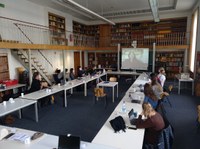
![Birgit zur Nieden [in German] on the amendment of the Berlin Participation Act Birgit zur Nieden [in German] on the amendment of the Berlin Participation Act](https://www.rewi.hu-berlin.de/en/lf/oe/lsi/news/birgit-zur-nieden-in-german-on-the-amendment-of-the-berlin-participation-act/@@images/image-200-06f310aade7d0e6c3c77f0f2a8f620e6.jpeg)
